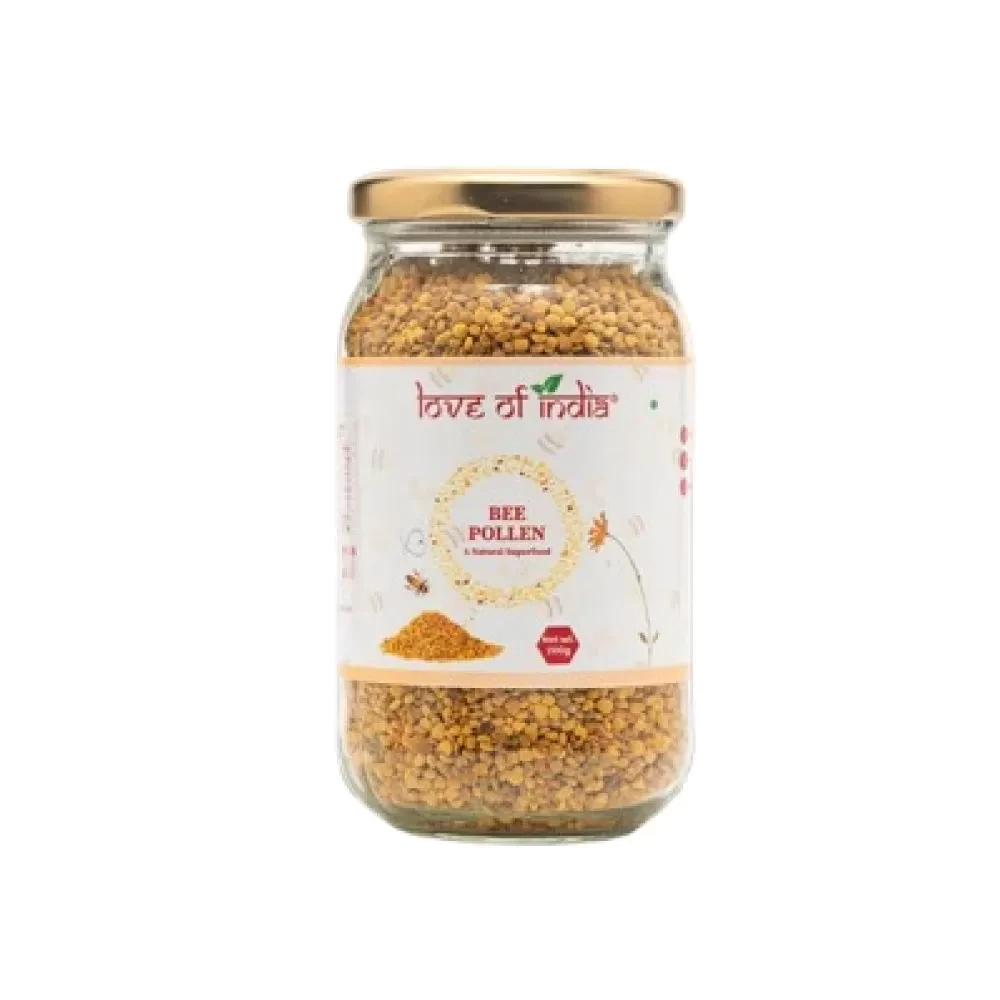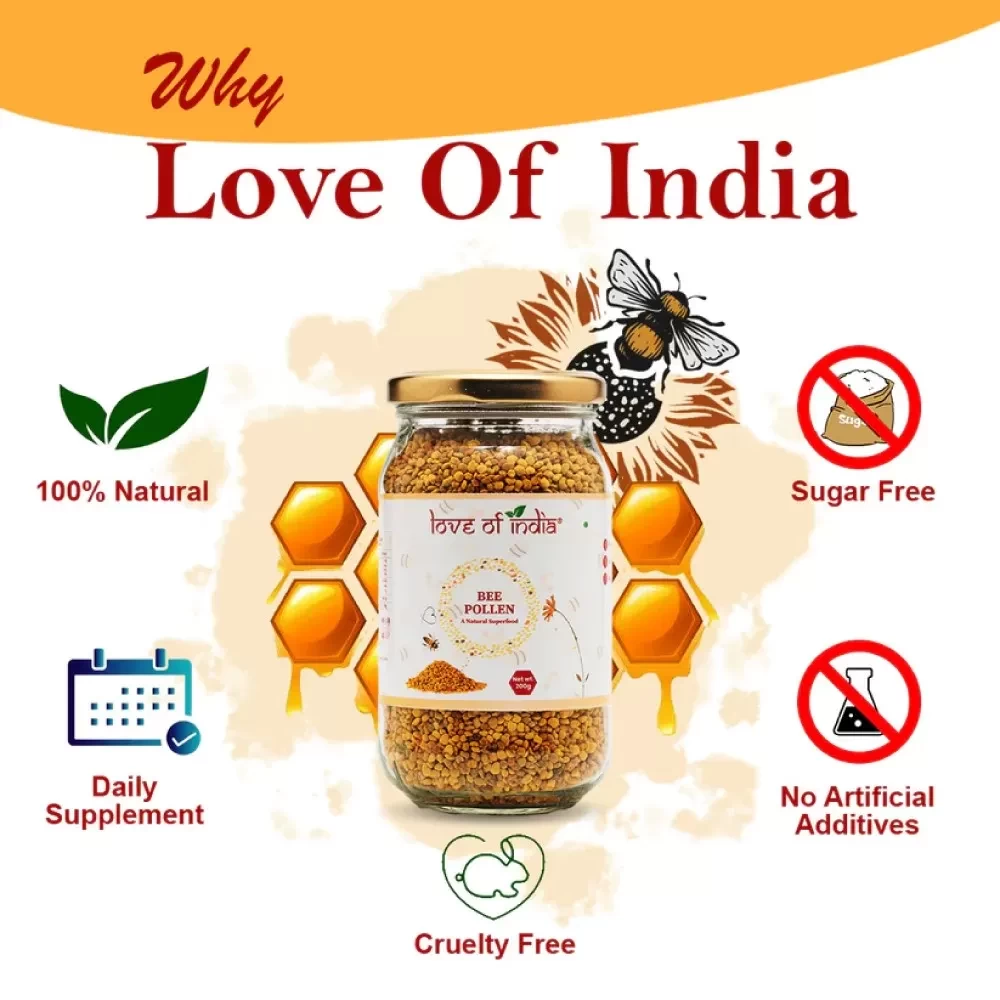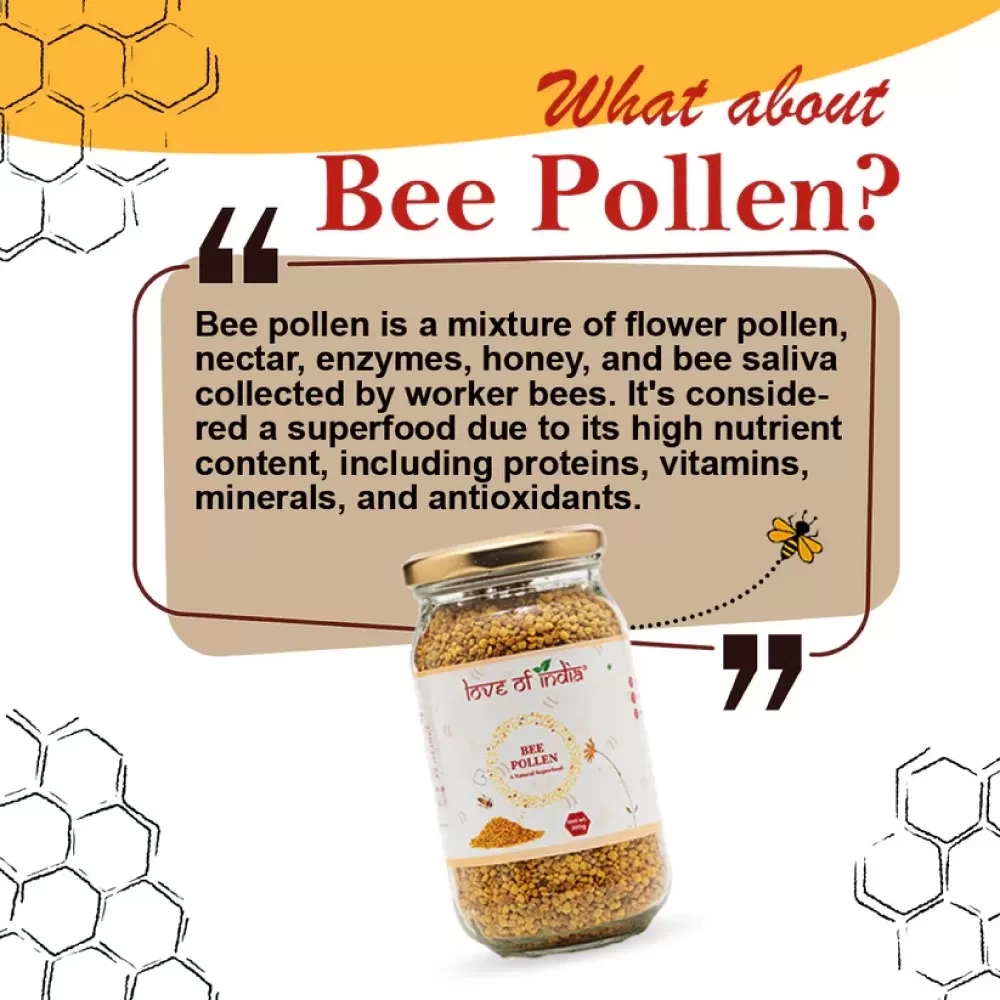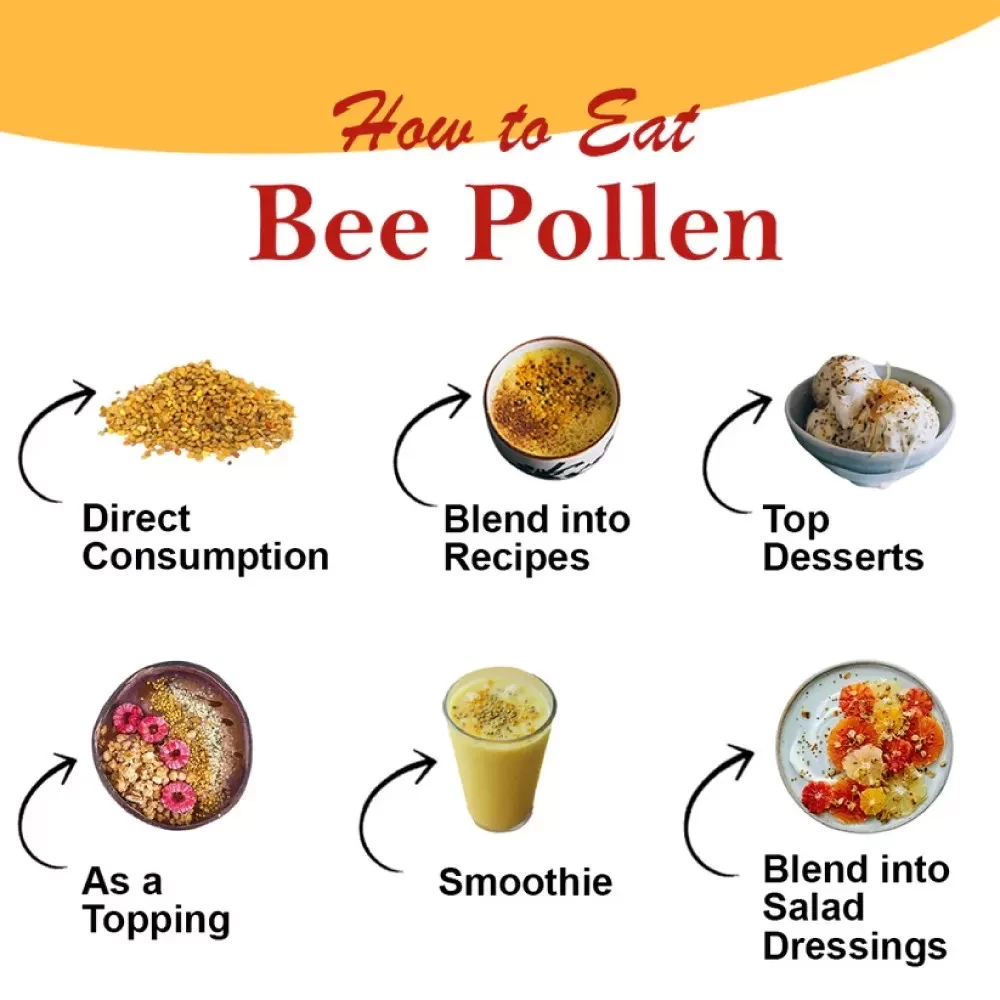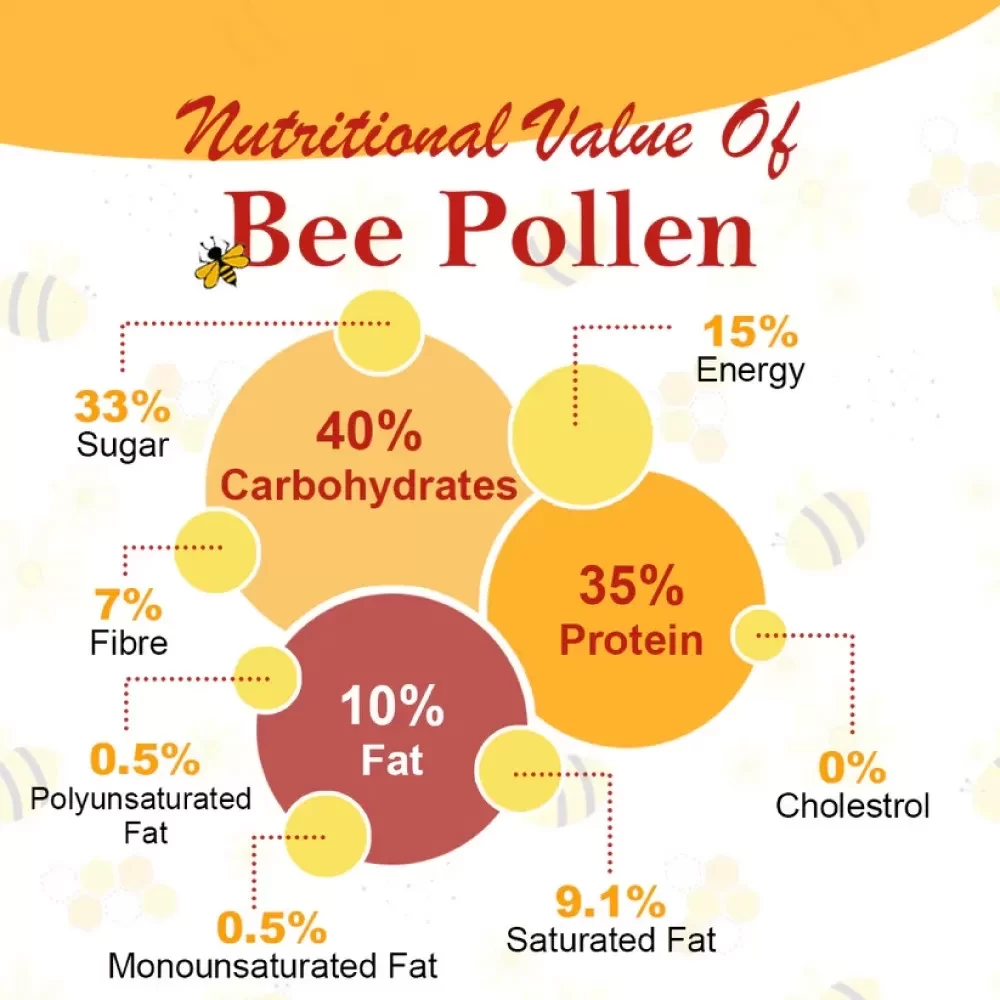Bee pollen is a superfood which is a mixture of pollen grains collected by honeybees from various flowers. As bees forage for nectar to make honey, they also collect pollen, which sticks to their bodies due to their fuzzy texture and is transferred to special baskets on their hind legs called "pollen baskets" or "corbiculae."
Beekeepers then collect these pellets, which are then processed and sold as a natural dietary superfood known for its nutritional value and potential health benefits.
While bee pollen is generally considered safe for most people, there are certain groups who should exercise caution or avoid taking bee pollen altogether. Here's a breakdown of who can consider taking bee pollen :
- Adults: Generally, healthy adults can safely consume bee pollen pellets in moderate amounts. However, it's essential to start with small doses and monitor for any adverse reactions. Known to aid in weight management and increasing metabolism.
- Athletes and Fitness Enthusiasts: Bee pollen is often used by athletes and fitness enthusiasts to enhance energy levels, stamina, and performance. Its nutrient-rich composition makes it a popular choice for those seeking natural nutritional support.
- Individuals Seeking Immune Support: Some people take bee pollen pellets to support their immune system, particularly during times of increased stress or susceptibility to illness.
- People Interested in Skin Health: Bee pollen contains compounds that may benefit skin health, such as amino acids, vitamins, and antioxidants. Therefore, individuals looking to improve their skin's appearance and promote skin regeneration may consider bee pollen pellets.
- Those Seeking Nutritional Support: Bee pollen is rich in vitamins, minerals, proteins, and other nutrients, making it a valuable addition to the diet for individuals looking to boost their nutritional intake.
However, certain groups should approach bee pollen pellets with caution or avoid them altogether:
- People with Pollen Allergies: Individuals who are allergic to pollen or bee products should avoid bee pollen pellets, as they may trigger allergic reactions. Symptoms can range from mild itching and swelling to severe allergic reactions, including anaphylaxis.
- Pregnant and Breastfeeding Women: There is limited research on the safety of bee pollen pellets during pregnancy and breastfeeding. Therefore, it's best for pregnant and breastfeeding women to consult with a healthcare professional before taking bee pollen pellets.
- Children: Bee pollen pellets are not recommended for children, as their developing immune systems may be more susceptible to allergic reactions. It's best to consult with a pediatrician before giving bee pollen pellets to children.
- Individuals with Medical Conditions or Taking Medications: If you have underlying health conditions or are taking medications, it's essential to consult with a healthcare professional before taking bee pollen pellets. Bee pollen may interact with certain medications or exacerbate certain health conditions.


